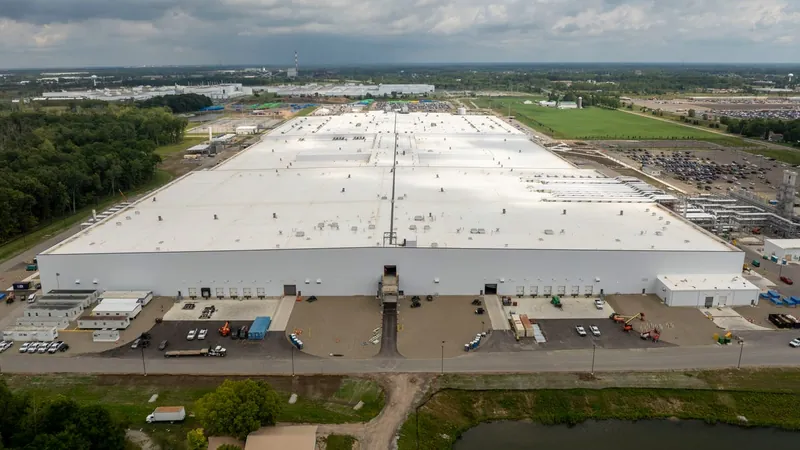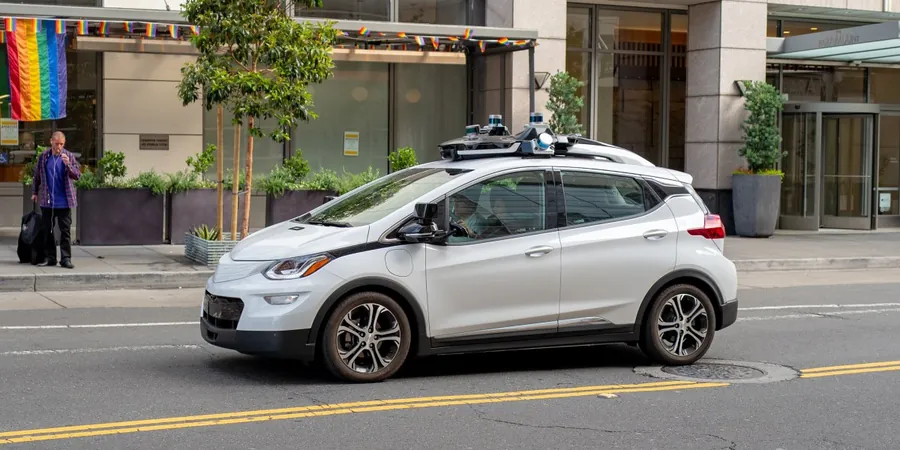
GM Offloads Stake in Lansing Battery Plant to LG Energy Solution: What This Means for the EV Market and Job Security
2024-12-03
Author: Jia
In a significant move aimed at enhancing capital efficiency, General Motors Co. (GM) has announced the sale of its stake in the Lansing Ultium Cells LLC battery plant to its joint-venture partner, LG Energy Solution. This strategic decision is anticipated to help GM recover $1 billion from its invested capital and is set to finalize in the first quarter of 2025.
Paul Jacobson, GM’s executive vice president and CFO, emphasized the automaker’s growing profitability in electric vehicles (EVs) due to their strategic collaboration with LG Energy. "Our EV profitability is rapidly improving, and we have set the foundation to scale effectively in the electrified market," he stated. He also highlighted that the transfer of ownership would allow LG Energy to address increasing global demand while enhancing GM's operational efficiency.
Despite this change, GM maintains its ownership interest in Ultium Cells, the battery joint venture with LG, which remains committed to other Ultium battery plants located in Warren, Ohio, and Spring Hill, Tennessee. Additionally, GM's joint venture with Samsung SDI to construct a battery facility in Indiana remains unchanged.
LG Energy also expressed its excitement about the acquisition, stating they are finalizing plans to optimize investments in North America and cater to the requirements of global automakers. Currently, the Lansing plant has almost 100 employees and is on track to fulfill its commitment of 1,700 jobs. In a memo shared with staff, Ultium assured employees that there would be no job losses as part of this transition; they would retain their positions and become LGES employees post-sale.
The decision comes after GM recently laid off approximately 1,000 employees, a move that aligns with CEO Mary Barra's indication of prioritizing capital efficiency to boost profitability within a competitive market. Despite a record number of EV deliveries—32,095 units in the third quarter, marking a 60% increase year-over-year—demand for EVs has shown signs of slowing, forcing auto manufacturers to recalibrate their production targets.
Industry analysts, like Stephanie Brinley of S&P Global, noted that while demand for battery electric vehicles (BEVs) continues to grow, the pace hasn't matched initial expectations. The sale of the Lansing plant stake allows LG to provide battery capacity to various automakers, alleviating GM's direct investment burden amidst fluctuating market dynamics.
Compounding the uncertainty in the industry are governmental shifts that may impact tax incentives for EV consumers. Despite the challenges, GM is venturing into lower-cost battery solutions and increasing collaboration with LG Energy on prismatic cell development—an innovative battery technology aimed at reducing costs and weight in electric vehicles.
The Lansing Ultium Cells plant was part of a broader $6.5 billion investment that received significant state incentives. However, delays in electric truck production at GM's Orion Assembly plant have caused concern regarding job creation and company commitments to the state. The state has confirmed that GM has met its obligations so far, requiring the creation of over 1,800 jobs by 2030.
Local leaders remain optimistic about job preservation and future opportunities, but skepticism surrounds GM's long-term commitment to Michigan. Recent criticisms from state lawmakers highlight heightened scrutiny regarding GM's financial maneuvers, especially as they pursue taxpayer funding for other projects.
With employment and economic opportunities hanging in the balance, the negotiation landscape for EV manufacturers in Michigan continues to evolve, and stakeholders are eager to see how these developments will impact the region’s industrial future.




 Brasil (PT)
Brasil (PT)
 Canada (EN)
Canada (EN)
 Chile (ES)
Chile (ES)
 España (ES)
España (ES)
 France (FR)
France (FR)
 Hong Kong (EN)
Hong Kong (EN)
 Italia (IT)
Italia (IT)
 日本 (JA)
日本 (JA)
 Magyarország (HU)
Magyarország (HU)
 Norge (NO)
Norge (NO)
 Polska (PL)
Polska (PL)
 Schweiz (DE)
Schweiz (DE)
 Singapore (EN)
Singapore (EN)
 Sverige (SV)
Sverige (SV)
 Suomi (FI)
Suomi (FI)
 Türkiye (TR)
Türkiye (TR)